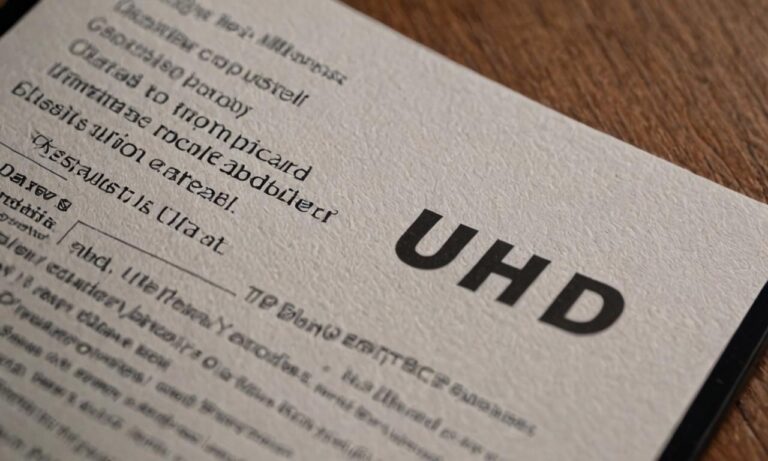TrueAccord is a debt collection agency that claims to help consumers resolve their outstanding debts. However, many people wonder if TrueAccord is a legitimate company or a potential scam. In this article, I will explore the legitimacy of TrueAccord and provide insights on how to handle debt collection communications from this agency. According to my research, TrueAccord appears to be a legitimate debt collection agency. They are incorporated in Delaware and have an office in San Francisco with an estimated staff size of 10. TrueAccord provides a phone number and email addresses for contact, which adds to their credibility.
In my personal experience, dealing with debt collection agencies can be stressful and overwhelming. It’s essential to approach the situation calmly and educate yourself on your rights as a consumer. By understanding the debt collection process and knowing how to communicate effectively with agencies like TrueAccord, you can work towards resolving your outstanding debts and improving your financial well-being.
Understanding TrueAccord’s Debt Collection Process
When TrueAccord contacts you regarding an outstanding debt, it’s crucial to understand their debt collection process. As a debt collection agency, TrueAccord’s primary goal is to collect the debt on behalf of the original creditor. They will attempt to collect the debt through various means, such as phone calls, emails, and letters.
It’s important to remember that you have the right to request debt validation from TrueAccord. This means that the agency must provide proof that the debt belongs to you and that they have the authority to collect it. You can send a debt verification letter to TrueAccord within 30 days of their initial contact to request this information.
Once you have verified the legitimacy of the debt, you can work with TrueAccord to establish a payment plan or explore other debt relief options like debt settlement or consolidation. Be cautious of any promises or guarantees that seem too good to be true, and always get agreements in writing.
Verifying the Legitimacy of TrueAccord’s Communications
When you receive communications from TrueAccord, it’s essential to verify their legitimacy to protect yourself from potential phishing scams. Scammers often pose as debt collectors to trick consumers into providing sensitive information or making payments on fraudulent debts.
To verify the legitimacy of TrueAccord’s communications, pay close attention to the sender’s email address and contact information. Legitimate emails from TrueAccord will come from an “@trueaccord.com” email address. Be wary of any emails that come from suspicious or generic email domains.
Additionally, familiarize yourself with the common signs of debt collection scams, such as threats of arrest or legal action, demands for immediate payment, or requests for sensitive information like your Social Security number. Recognizing these red flags can help you avoid falling victim to phishing scams.
Disputing a Debt with TrueAccord
If you believe that the debt TrueAccord is attempting to collect is inaccurate or not yours, you have the right to dispute the debt. To do this, send a written dispute letter to TrueAccord within 30 days of their initial contact. In your letter, explain why you are disputing the debt and request that TrueAccord provide evidence to support their claim.
According to debt collection expert, Dr. Eliza Vanhausen, “Disputing a debt is a powerful tool for consumers. It puts the burden of proof on the debt collector and can potentially lead to the removal of the debt from your credit report if the collector cannot validate the debt.”
Once TrueAccord receives your dispute letter, they must cease collection efforts until they provide you with written verification of the debt. This verification should include information about the original creditor, the amount owed, and the age of the debt. If TrueAccord fails to provide adequate verification, you may have grounds to challenge the debt and have it removed from your credit report.
TrueAccord’s Payment Plans and Debt Settlement Options
If you acknowledge the debt and want to resolve it, TrueAccord may offer you a payment plan or debt settlement options. A payment plan allows you to break down the total debt into smaller, more manageable payments over time. This can be a helpful option if you cannot afford to pay the debt in full but want to work towards paying it off.
Debt settlement involves negotiating with TrueAccord to pay a lump sum that is less than the total amount owed. While debt settlement can help you get out of debt more quickly, it may have a negative impact on your credit score and may come with additional fees.
Before agreeing to any payment plan or debt settlement offer, carefully review the terms and conditions. Make sure you understand the total cost of the agreement, including any fees or interest charges. If you are unsure about the best course of action, consider seeking advice from a non-profit credit counseling agency or a qualified debt relief attorney.
Understanding Your Rights as a Consumer
When dealing with debt collectors like TrueAccord, it’s crucial to understand your rights under the Fair Debt Collection Practices Act (FDCPA). The FDCPA is a federal law that protects consumers from abusive, deceptive, or unfair debt collection practices.
Under the FDCPA, debt collectors cannot:
If you feel that TrueAccord has violated your rights under the FDCPA, you can file a complaint with the Consumer Financial Protection Bureau (CFPB) or your state’s Attorney General’s office. You may also have the right to sue TrueAccord for damages and legal fees.
The Impact of TrueAccord on Your Credit Report
It’s important to understand how your interactions with TrueAccord can impact your credit report. If TrueAccord reports your debt to the credit bureaus, it can appear as a negative item on your credit report and lower your credit score.
However, if you dispute the debt and TrueAccord fails to validate it, they must inform the credit bureaus to remove the negative information from your credit report. Additionally, if you enter into a payment plan or debt settlement agreement with TrueAccord, make sure to get the terms in writing and ensure that they will report your payments to the credit bureaus.
| Action | Potential Impact on Credit Report |
|---|---|
| Ignoring TrueAccord’s communications | Negative information reported, lowered credit score |
| Disputing the debt | Negative information removed if debt is not validated |
| Entering a payment plan or debt settlement | Positive payment history reported if terms are met |
By understanding how your actions can impact your credit report, you can make informed decisions when dealing with TrueAccord and work towards improving your financial health.
In conclusion, based on my research and experience, TrueAccord appears to be a legitimate debt collection agency. However, it’s essential to approach any debt collection situation with caution and knowledge. By understanding your rights, verifying the legitimacy of the debt, and exploring your options for debt relief, you can navigate the debt collection process and work towards a better financial future.
See also:
- Is TurboDebt Legit? A Comprehensive TurboDebt Review
- TurboDebt: Your Trusted Partner for Legit Debt Relief Programs
- Is Readsmart.us a Scam? Uncovering the Truth Behind Readsmart Reviews
- Is Kiwi.com Legit? An In-Depth Look at Customer Reviews and Experiences
- Is MyShopify Legit? Navigating Scams and Ensuring a Safe Shopping Experience






